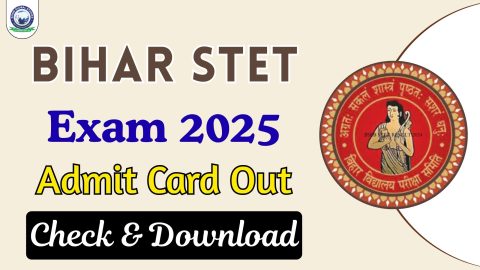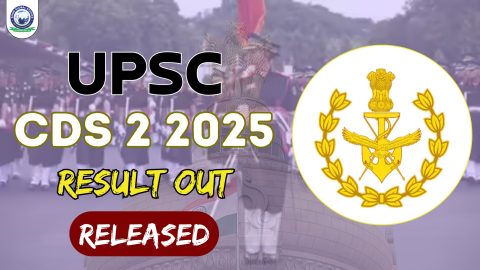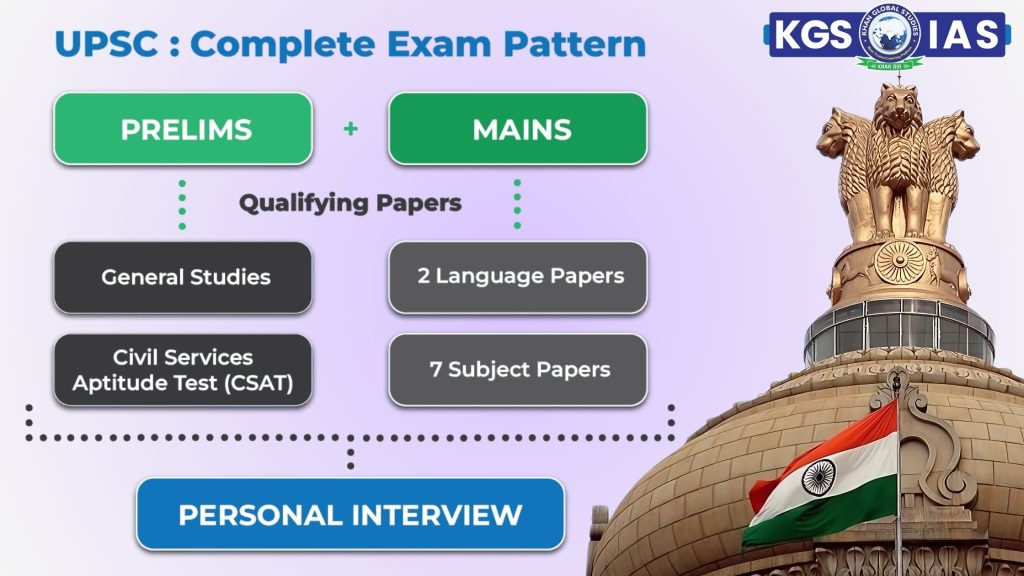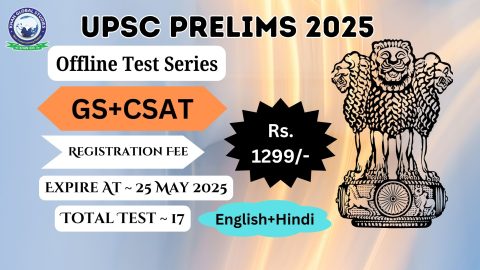Understanding the structure of the UPSC Civil Service Examination is the first step toward a successful preparation journey. Many aspirants find the exam’s vastness intimidating, but breaking down its pattern can make the process much more manageable. This guide provides a straightforward explanation of the UPSC exam pattern, covering everything from the initial screening test to the final personality assessment.
The exam is a three-stage process designed to test a candidate’s knowledge, analytical skills, and suitability for a career in civil services. These stages are:
- Preliminary Examination (Prelims)
- Main Examination (Mains)
- Personality Test (Interview)
Let’s explore each stage in detail so you know exactly what to expect.
Stage 1: The Preliminary Examination (Prelims)
The Prelims is the first hurdle. It’s an objective-type screening test designed to shortlist candidates for the next stage. The marks you score here won’t be counted in your final merit list, but you must pass it to qualify for the Mains.
The Prelims round consists of two papers, both held on the same day.
| Paper | Subject | No. of Questions | Total Marks | Duration | Nature |
| Paper I | General Studies (GS) | 100 | 200 | 2 Hours | Merit-based |
| Paper II | CSAT | 80 | 200 | 2 Hours | Qualifying |
General Studies Paper I
This paper is crucial for your selection to the Mains exam, as its score determines the cutoff. It covers a wide range of subjects, including:
- History of India and the Indian National Movement
- Indian and World Geography
- Indian Polity and Governance
- Economic and Social Development
- General issues on Environmental Ecology, Bio-diversity, and Climate Change
- General Science
- Current events of national and international importance
General Studies Paper II (CSAT)
The Civil Services Aptitude Test, or CSAT, is qualifying in nature. This means you only need to score a minimum of 33% (66 marks out of 200) to pass. Your performance in this paper doesn’t affect the Prelims merit list, but failing it means you won’t qualify for the Mains, regardless of your GS Paper I score.
CSAT assesses skills like:
- Comprehension
- Logical reasoning and analytical ability
- Decision-making and problem-solving
- General mental ability
- Basic numeracy (Class X level)
Understanding the Negative Marking
It’s important to be aware of the negative marking in the Prelims. For every incorrect answer, one-third (1/3) of the marks assigned to that question will be deducted.
- In GS Paper I: Each question is worth 2 marks. An incorrect answer will result in a deduction of 0.66 marks.
- In CSAT Paper II: Each question is worth 2.5 marks. An incorrect answer will lead to a deduction of 0.83 marks.
Stage 2: The Main Examination (Mains)
Candidates who clear the Prelims cutoff move on to the Mains exam. Unlike the Prelims, this stage is descriptive and requires written answers. The scores obtained in the Mains are counted for the final merit ranking, making it a critical phase of the selection process.
The Mains exam consists of nine papers, all of which are descriptive.
Qualifying Papers
There are two language papers that are qualifying in nature. You must score at least 25% (75 out of 300) in each to have your other Mains papers evaluated.
| Paper | Subject | Marks | Duration | Nature |
| Paper A | Any Indian Language | 300 | 3 Hours | Qualifying |
| Paper B | English | 300 | 3 Hours | Qualifying |
Papers Counted for Merit
The remaining seven papers determine your ranking. Each of these papers is worth 250 marks, bringing the total for the written exam to 1750 marks.
| Paper | Subject | Marks | Duration |
| Paper I | Essay | 250 | 3 Hours |
| Paper II | General Studies I | 250 | 3 Hours |
| Paper III | General Studies II | 250 | 3 Hours |
| Paper IV | General Studies III | 250 | 3 Hours |
| Paper V | General Studies IV (Ethics) | 250 | 3 Hours |
| Paper VI | Optional Subject Paper 1 | 250 | 3 Hours |
| Paper VII | Optional Subject Paper 2 | 250 | 3 Hours |
| Total | 1750 |
Choosing Your Optional Subject
For Papers VI and VII, you need to select one optional subject from a list provided by UPSC. This list includes a wide range of subjects, from humanities like History and Sociology to technical ones like Civil Engineering and Medical Science. Both papers will be based on the single optional subject you choose.
Stage 3: The Personality Test (Interview)
The final stage of the selection process is the Personality Test, commonly known as the interview. Candidates who clear the Mains written exam are called for this round. It is conducted by a board of competent and impartial members who assess the candidate’s suitability for a career in public service.
The interview is worth 275 marks. The final merit list is prepared based on the total score obtained in the Mains (1750 marks) and the Personality Test (275 marks), for a grand total of 2025 marks.
The board evaluates personal qualities such as:
- Mental alertness and logical reasoning
- Balance of judgment and leadership skills
- Intellectual and moral integrity
- Variety and depth of interests
- Social cohesion and a clear thought process
Frequently Asked Questions (FAQs)
How many papers are there in the UPSC Mains exam?
There are a total of nine papers in the UPSC Mains exam. This includes two qualifying language papers and seven merit-ranking papers (one essay, four General Studies, and two optional subject papers).
Is there negative marking in the UPSC exam?
Yes, but only in the Preliminary stage. For each incorrect answer in the Prelims, one-third of the marks for that question are deducted. There is no negative marking in the Mains exam, which is descriptive.
Are the marks from Prelims counted in the final result?
No, the Prelims exam is only a screening test to select candidates for the Mains exam. The marks obtained in Prelims are not included in the final merit list. Your final rank depends on your combined score in the Mains written exam and the Personality Test.
What kind of questions are asked in the interview?
The interview questions cover a broad spectrum. They can be related to your personal background, education, hobbies, work experience, current affairs, and socio-economic issues. Situational questions may also be asked to assess your decision-making and problem-solving skills.
Can I choose any Indian language for Paper A?
You can choose any one of the Indian languages included in the Eighth Schedule of the Constitution for Paper A of the Mains exam. Paper B, however, is compulsorily English for all candidates.





